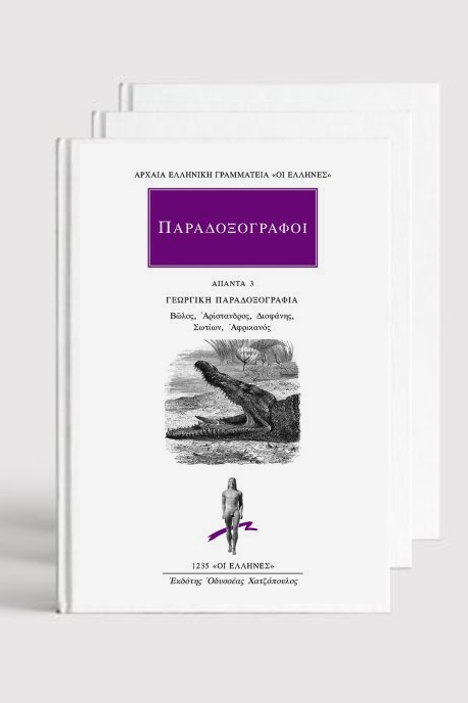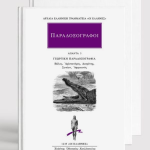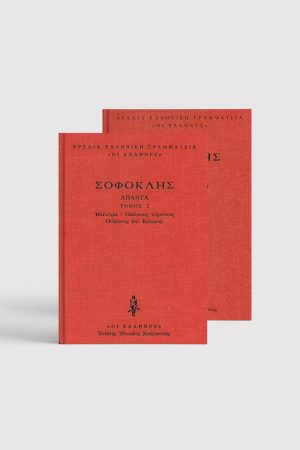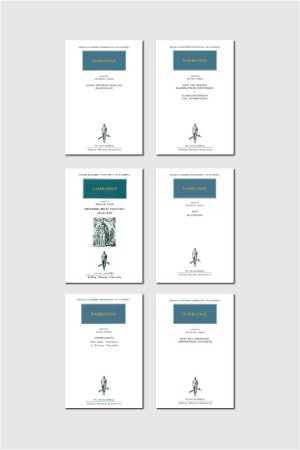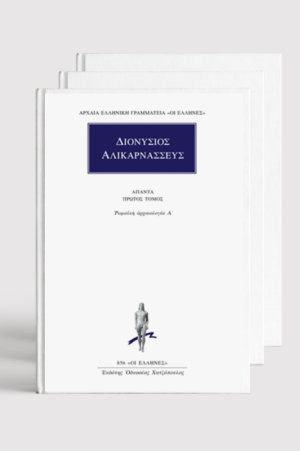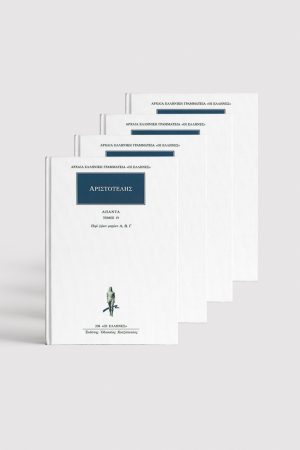Paradoxographers Collection (4 volumes)
Original price was: 76,30 €.30,52 €Current price is: 30,52 €.
Ghosts and monstrous births, meteorological phenomena and mysterious beasts, paradoxical machines and agricultural superstitions, tricks against bad luck and curious customs of distant tribes—all in a four-volume collection that captivates attention and sparks the imagination.
- Description
Description
Description
Paradoxography is a unique genre of ancient Greek literature that records all sorts of remarkable and impressive things (paradoxes, marvels). These come from various domains such as nature, human achievements, history, and mythology, and they defy the established order of logic and common experience, evoking surprise and admiration. The interests of paradoxographers covered a broad range, from natural phenomena, zoology, botany, geology, and hydrography to the peculiar customs of various peoples, myths, historical events, the supernatural, and magic. The collection includes:
- Volume 1 – Early Paradoxography: Excerpts from the works of early paradoxographers (4th-2nd centuries BCE), as well as the complete surviving works of two significant ancient paradoxographers, Antigonus of Carystus and Apollonius, who focused mainly on natural paradoxes.
- Volume 2 – Late Paradoxography: Excerpts and works of paradoxographers from the late antiquity period (2nd century BCE – 5th century CE). Among them, a prominent position is held by the paradoxographic work of the historian Phlegon of Tralles, which deals with various supernatural paradoxes, such as appearances of ghostly apparitions, births of hermaphrodites, discoveries of gigantic skeletons, monstrous births, large numbers of multiples, children who aged prematurely, and the discovery of centaurs. The volume also includes Phlegon’s work that lists people who lived over 100 years, as well as the beginning of Phlegon’s work On the Olympiads, which presents the history of the establishment of the Olympic Games. It also includes excerpts from the remaining lost historical works of Phlegon, as well as his famous mention of the solar eclipse that occurred during the crucifixion of Christ. Finally, the volume includes the work of Philon of Byzantium, which describes the Seven Wonders of the Ancient World.
- Volume 3 – Agricultural Paradoxography: A significant part of ancient paradoxography is agricultural paradoxography, which primarily dealt with paradoxes in the fields of botany and agronomy. By extension, it also explored paradoxes in the everyday life of rural people, involving issues related to zoology, meteorology, geology, and more.
- Volume 4 – Anonymous Paradoxography – Pseudo-Paradoxography: This volume includes anonymous paradoxographic works that are named after the locations where the surviving manuscripts are kept, such as the Florentine Paradoxographer, the Vatican Paradoxographer, and the Palatine Paradoxographer. It also includes works from the Byzantine period, such as those by Michael Psellus. Works classified as pseudo-paradoxographical appear to be related to the genre of paradoxography but actually belong to other genres. For example, the work of Anthemios, which falls under ancient mechanics, and the anonymous On the Unbelievers, which is part of mythography, are considered pseudo-paradoxographical. Finally, the volume includes a detailed index of proper names from all the paradoxographic works.

